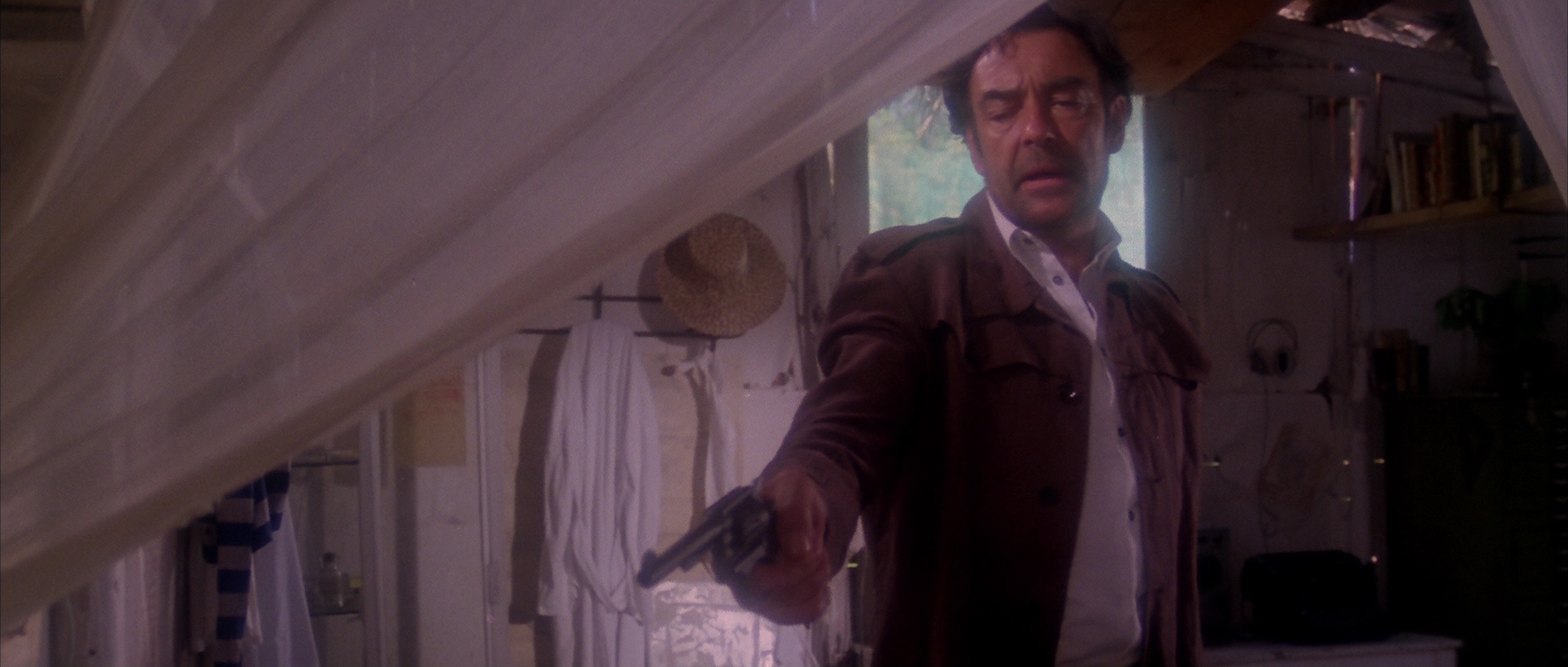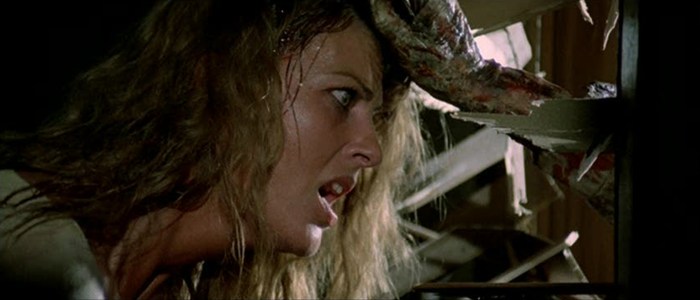
It’s one of those annoying questions that may cause some Horror fans to keep their love of the macabre secret. Often when people ask me that question it is part earnest inquiry and part religious judgment. As a religious professional and health care chaplain, it is expected that I would be appalled at such films. I can recall once being asked “How can you watch such violent movies?” It’s an inquiry to which many Horror fans can relate. We are asked it any time someone learns of our passion for the genre. My colleague appeared actually surprised and disappointed that I hadn’t seen The Blind Side. My colleague said, “It’s so uplifting – I thought you would like that.” But such films have no real attraction for me despite their life affirming themes.
I often sidestep the question by making the distinction between real violence and cinema violence. Cinema violence is fake, staged and to a degree unrelatable (I have yet to be chased through the woods by a machete wielding maniac), while real violence on the news and social media is deeply unsettling. By doing this I subtly try to convince the inquirer that I am not a psycho.

A second defense involves questioning why the portrayal of historical violence such as the atrocities of the concentration camp in Schindler’s List is acceptable, while the garish outlandish violence of Friday the 13th is not. “How can you enjoy and be entertained by a movie like that knowing those things happened for real and I can’t enjoy a film that is violent but not based on any historical reality?” If my counter question does not assuage my critic I fall back on the standard: “I enjoy the suspense not the gore” response and move on.
But really I am not satisfied with those answers as they are merely defensive rebuttals. The truth is I am just attracted to violent movies – from drive-in melodramas to 80’s slashers and anything in between. And I believe that the personal appeal for me is the straightforward honesty of these types of films. By that I don’t mean their graphic portrayals of realistic violence, but rather an honesty in story telling that is peculiar to Horror films. Characters in Horror films often have clearly defined motives. If a killer comes at you with an axe you either run or you fight. And so, in the world of Horror cinema the silver screen menaces are real and are either vanquished or victorious.

Horror films have an honesty to them that is immensely appealing to me. No one ever looked at the classic poster for Lucio Fulci’s Zombie with the haunting, “We are going to eat you” tag line, and thought, “I wonder what this movie is about?” Horror films are invitational in that they ask the viewer: “what would you do in this situation?” It is a question that viewers hopefully continue to ponder even after the movie ends.
The violence of these types of Horror films are an expected projection of the truthfulness and earnestness of their storytelling. There is an immediacy to their rhythm. Characters in Horror movies in some sense have to keep moving or they will die. My work as an ecumenical chaplain calls me to reside bedside with my aging dying residents. Though we are ultimately powerless against the natural forces of death, I journey with the dying and their families during their time of grief. We speculate on the unknown together. But in contrast to this work – the Horror films I view – give us a fighting chance in the face of death: to cheat death itself, even if it is only on the screen. There is the thrill of the fight and rooting for the survivor.

But Horror films resonate on another level: they remind me that to live life honestly and truthfully is to invite conflict and even violence with the people and power structures that exist around us. Such violence can be frightening to people. And so in life we have duplicitous dealings, hidden agendas and motives, subconscious lurkings, gray areas of indecision. Many people live in their head: motives are questioned, moves are second guessed and accountability is lacking. These gray areas are a fact of life. But not in Horror films. Many Horror films don’t really have gray areas. They exist in the body, in the racing heart, the running feet, the hands that are used to ward off evil. Horror films dwell within a particular realm of honesty and truthfulness unlike any other film genre. They invite us to live, even for a while, in the world of action. Indecision is death. Yet so much of actual life can be filled with indecision and hesitancy.
In this way such films can even be transformative for people. Horror films are escapist entertainment, not necessarily meant to answer the deeper questions that each individual must face on their own. But they can be liberating. They can hopefully inspire people to move beyond their own entrapments in systems of abuse and stagnation. Many Horror films are survivor stories – even when the evil is not fully vanquished – they are still survivor stories. They remind the viewer that now it’s their turn to continue to move forward but most importantly to continue to live.





